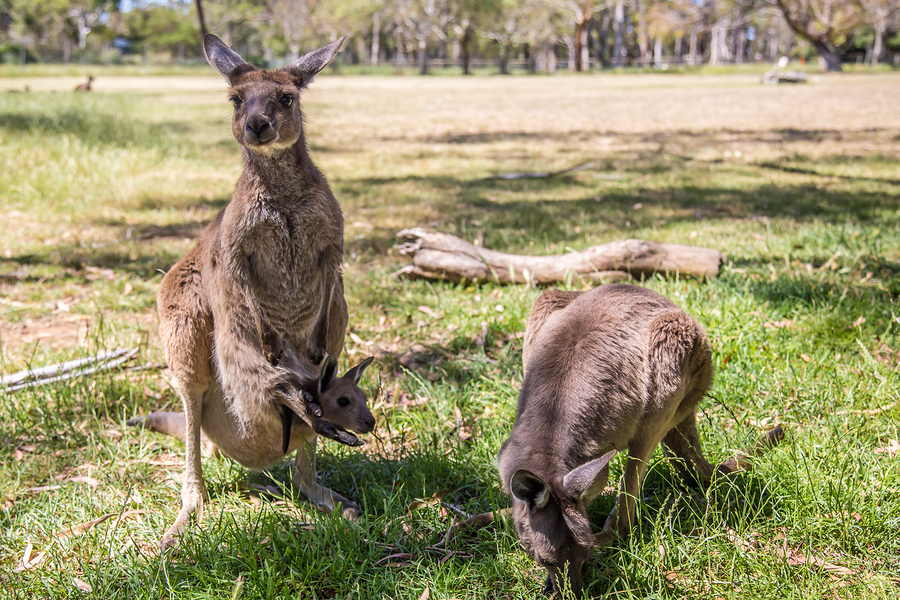- Make It Yourself Lavender Heart-Shaped Bath Bombs!
- 20 Things You Never Knew About “Down There”
- 12 Best Foods For Those Suffering From Arthritis Pain
- 12 Personal Hygiene Mistakes Almost Everyone Makes (Mom Never Told You About #4!)
- 15 Medicinal Plants And Herbs From The Cherokee People
- 12 Mind-Blowing Benefits Of Drinking Coconut Water During Pregnancy
- 12 Outstanding Winter Foods That Won’t Fatten You Up Like A Christmas Turkey
Kangaroo Care May Be The Best Option For Premature Babies

Photo credit: bigstockphoto.com
In the course of any pregnancy, the woman in question, her family, and the doctors she’s working with are always on the lookout for any potential complications. One that affects millions of newborns around the world is premature birth.
In many cases, it can be difficult to determine why exactly a woman has gone into labor early. One major factor appears to be genetic in nature. However, certain behaviors, like smoking and drug use, can increase the likelihood of a premature birth. Physical injuries, miscarriages, or having had multiple abortions can also increase the chances, according to the Mayo Clinic. Other environmental factors, such as living at a high attitude, can contribute an increased risk of premature labor for some women. Also, if a woman has given birth prematurely in the past, this will increase her chances of doing so again.
When a baby is born prematurely in most developed countries, the infant is placed in an incubator for its protection, and it may have to remain there for many days on end. But new research shows that a far more low-tech and traditional method called kangaroo care may actually be a superior method for ensuring that premature babies grow up to be strong and healthy.
Conventional Treatment for Babies Born Prematurely
If a woman goes into labor two months early in say, Britain, the United States, or Australia, what will typically happen is that the expectant mother will be rushed off the hospital and sent to the maternity ward. When the baby is born, the infant will be immediately taken to the neonatal intensive care unit (NICU) and placed in clear, box-like incubator. This environment is climate- and temperature-controlled and is meant to protect to the baby from germs and any other potential harm. The baby could remain there for weeks if there are any additional health complications, such as low birth weight, which is common among babies that are born prematurely.
The Kangaroo Care Method
“Kangaroo care” is a term used to describe an alternative approach for caring for premature babies, and is so named for the resemblance to the way mother kangaroos store their joeys (baby kangaroos) in their pouches. This approach is adopted mainly out of necessity, since in many developing countries, baby incubators and other advanced medical equipment aren’t always available.
When a baby is born prematurely, a mother using the kangaroo method simply holds the unclothed newborn upright against her bare chest. This is especially important during the first few hours of life, but is done consistently while the infant is very young.
Continue to Page 2

Photo credit: bigstockphoto.com
Kangaroo Care Versus the NICU
A study was performed in Colombia on premature babies born from 1993 through 1996. Researchers wanted to analyze the long-term effects of kangaroo care versus conventional treatment for babies born prematurely.
20 years later, researchers contacted adults from both groups and analyzed different aspects of their lives, including longevity and health, the quality of their social skills and their level of income. They found that the babies in the kangaroo care group grew up to have better social skills, earn higher incomes, and enjoy better health. These differences were most pronounced among babies born into poor families. These individuals exhibited greater impulse control and less antisocial behavior.
Keep reading: Top 10 Healthiest Foods to Eat After Giving Birth
The study, published in the Pediatrics medical journal, suggests that this method of simply holding a child is actually more effective than high-tech neonatal intensive care in an incubator.
The question becomes, why is this the case?
It seems that the simple experience of natural skin-to-skin contact between mother and child helps strengthen that child both physiologically and psychologically. The baby feels safe and protected, which results in less stress on the fragile nervous system of a premature baby. This results in a baby that grows up to be healthier and stronger than a baby born prematurely might be expected to be. The results have been so positive that kangaroo care is becoming popular even with mothers who deliver babies after a full-term pregnancy.
Now, premature birth is a very serious issue, and one shouldn’t base their decisions on one article on the internet. But if you’re expecting and suspect that you might go into labor prematurely, talk to your OBGYN about the kangaroo care approach. The evidence doesn’t lie, and it would certainly seem that it’s the way that nature intended for mothers to care for their babies after birth. Nature is rarely wrong.
References:
































